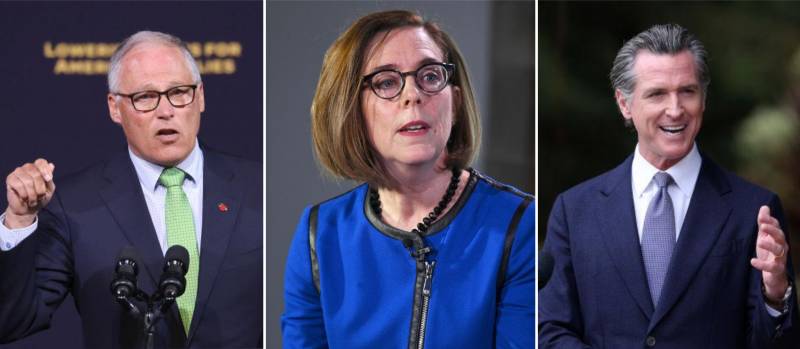President Joe Biden directed the Health and Human Services Department to take steps to make sure abortion and contraception medications are available "to the fullest extent possible," and said that his administration plans to protect the right to travel to another state for an abortion.
"The health and life of women of our nation are now at risk," Biden said. "Make no mistake. This decision is the culmination of a deliberate effort over decades to upset the balance of our law."
House Speaker Nancy Pelosi said at a Friday press conference that the Dobbs decision will shape how voters evaluate those seeking office this year.
"While Republicans seek to punish and control women, Democrats will keep fighting ferociously to enshrine Roe v. Wade into law of the land," Pelosi said. "This cruel ruling is outrageous and heart-wrenching. But make no mistake, it's all on the ballot in November."
Echoing Pelosi's remarks, Biden added that voters should make their voices heard, calling on them to elect candidates that will restore the right to an abortion at the congressional and local level.
"This fall, Roe is on the ballot. Personal freedoms are on the ballot. The right to privacy, liberty, equality – they're all on the ballot," Biden said.
Other Constitutional Rights at Risk
Some California lawmakers warned if the state and country are complacent, other rights may soon be at risk – including same-sex marriage.
That concern is backed up by the legal text of the Supreme Court's opinion.
While past court rulings protecting those rights aren't affected by the decision to overturn Roe v. Wade, Justice Clarence Thomas wrote, "in future cases we should reconsider all of this Court's substance due process precedents, including Griswold, Lawrence, and Obergefell."
Those past rulings regarded contraception, sodomy and same-sex marriage, respectively.
State Sen. Sydney Kamlager, D-Los Angeles, called the ruling "Orwellian," and echoed concerns that contraceptives and same-sex marriages are next in the legal crosshairs. State Sen. Scott Wiener, D-San Francisco, said that puts the nation at a turning point.
"They're not stopping at abortion. They're coming for marriage equality & contraception. They're going to reinstate anti-sodomy laws," Weiner tweeted Friday. "There is a battle for the soul of our nation [and] whether we'll remain a place where people get to be who we are [and] make decisions about our lives."

